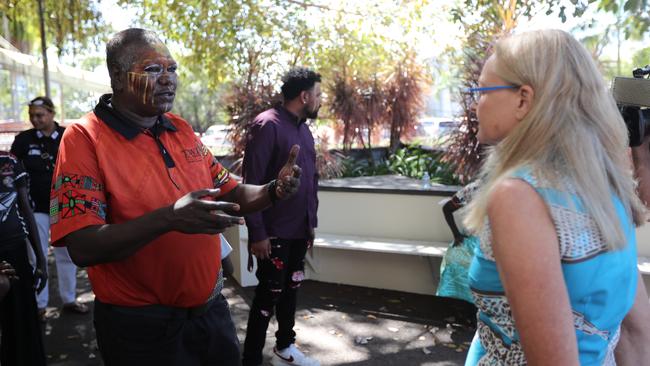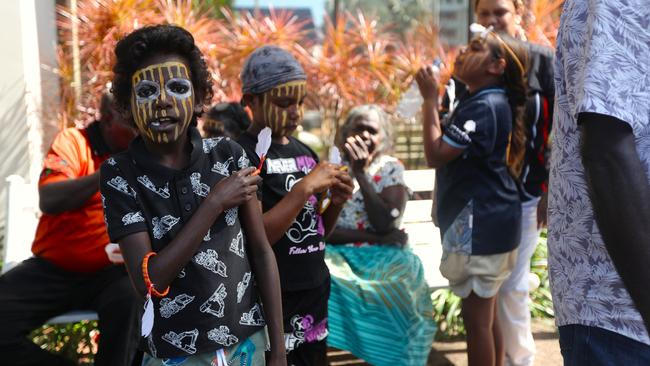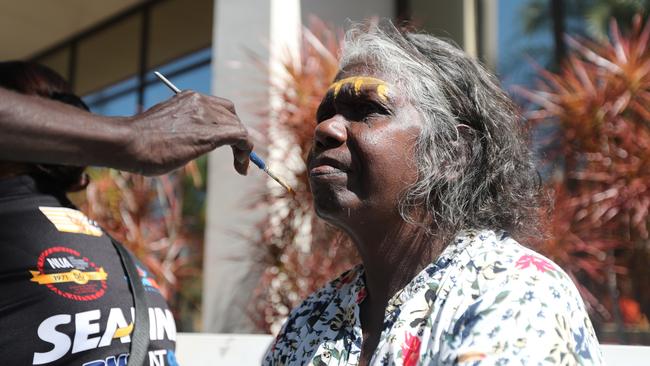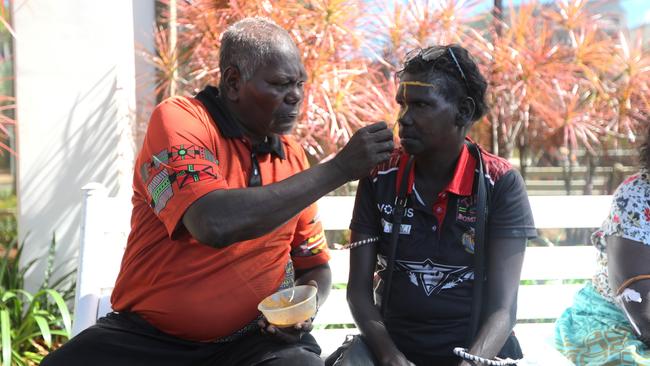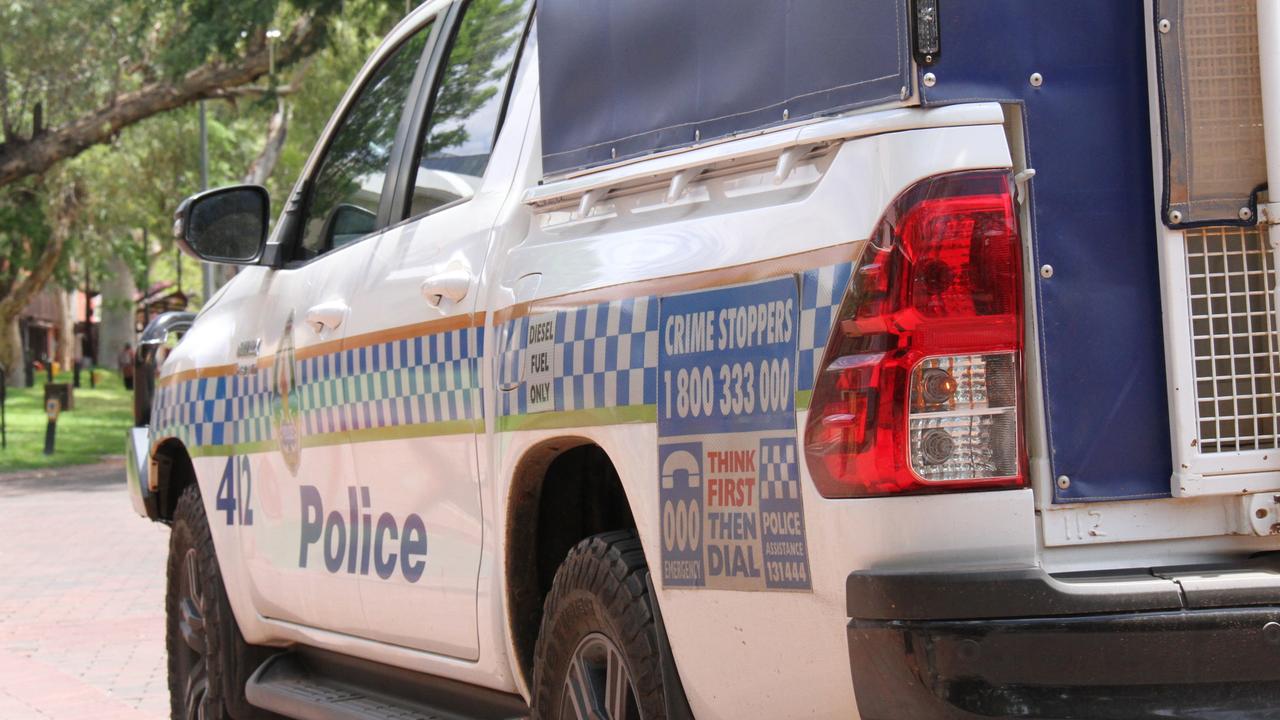Pukumani Alimankinni sedated in emergency department due to ‘bed blocked’ mental health ward
A Tiwi mum was repeatedly sedated and kept under guard while a patient for hours in hospital due to chronic ‘bed block’, coroner hears. Watch her family’s emotional tribute.
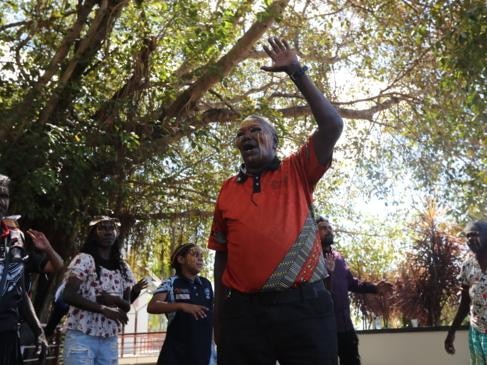
Police & Courts
Don't miss out on the headlines from Police & Courts. Followed categories will be added to My News.
Health workers breaking down in tears, bright lights 24 hours a day, and the chaos of an emergency ward ‘double bunked’ and stretched to the brink.
These were some of the final scenes 47-year-old Pukumani Alimankinni witnessed while in the grips of her own mental health crisis at Royal Darwin Hospital.
In a coronial inquest into her “preventable” death in care, NT Coroner Elisabeth Armitage heard about the Munupi woman’s “harrowing” four-day hospital experience before she stopped breathing due to the toxic cocktail of drugs on August 8, 2021.

Ms Armitage heard chronic “bed block” meant the woman with a psychotic spectrum disorder spent 61 hours on the emergency ward as an ‘outlier’ patient where she was repeatedly sedated to manage her distress.
Despite multiple health workers saying this was an inappropriate environment for these vulnerable patients, the on-call psychiatry registrar Andrew Wren told the coroner there were simply not enough mental health beds to handle demand.

Counsel assisting the coroner Beth Wild said while the Territory had double the mental health burden of other states, it had half the number of available beds.
“We don’t necessarily need anything really fancy, we just need more beds,” Ms Wild said.
And Ms Armitage added: “and the staff to support those patients.”
The family’s lawyer Hannah Donaldson said the woman’s wait on the emergency ward “prevented Pukumani receiving care in a therapeutic environment”.
Ms Donaldson said the distressing environment meant health workers relied on “pharmacological intervention”, essentially sedating her into compliance.
In just five days from leaving Tiwi to her passing, Pukumani was given a total of five antipsychotic medications and three sedatives, with one psychiatrist noting she may have been suffering from “medication induced delirium”.
For around three hours while in the emergency room the ‘agitated’ woman was placed in a closed room by herself, with guards posted to her door.
Despite strict regulations around the use of seclusion, no paperwork was filed around her placement.

There were several references in her medical notes to Pukumani being in “seclusion”, however it remains a point of conflict with NT Health whether she technically met that definition.
An emergency department nurse, who asked not to be named, initially wrote Pukumani was frustrated, yelling and screaming after being in “prolonged seclusion”.
However on Tuesday she retracted that note.
“There was no seclusion paperwork, to my knowledge, done. So therefore she was not in seclusion,” the nurse said.
She acknowledged Pukumani was “exit seeking”, including one occasion where three guards escorted her back to her room.

The nurse maintained seclusion required the door to be locked, or for staff to physically barricade the patient inside.
Yet under the NT Mental Health Act seclusion is simply defined as the “confinement of a patient … alone in a room or areas from which free exit is prevented”.
Mr Hutton maintained there was “no shortcoming in the seclusion policy”, but it is understood NT Health’s seclusion protocols may form part of the coroner’s findings.

According to the Productivity Commission, the Northern Territory had the lowest rate of seclusion events in mental health wards the country in 2022-23, with 4.1 events per 1000 bed days.
Only 12 months earlier it had the highest rates in Australia, with more than double the rate of Territory patients locked in their rooms for every 1000 bed days.
For eight of the past 10 years, the NT has recorded the highest rate of seclusion in the country.
Mental health emergency team Frieder Lehmann-Waldau said given the “bed block” another practice was for mental health patients to be taken to the “resus room” and chemically sedated — even to the point of needing assisted breathing — to ‘manage’ their behaviours.
“Because you could sedate her, if necessary, you could intubate her if necessary, and you could put her into ICU if necessary,” he said.
“It happens. It’s unpleasant. We don’t want that.”
Following the coronial, Pukumani’s family performed a tribute to their “loud and joyous” Jorrigjorringa (kookaburra), singing her totem’s song outside of the Darwin court.
IN PICTURES: Send off for Jorrigjorringa
More Coverage



